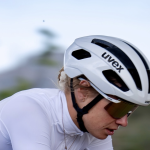The $12.2 tourism industry that caters to skiers, snowboarders and snowmobilers has lost $1 billion in revenues and up to 27,000 jobs over the last decade due to diminished snow fall patterns and the resulting changes in the outdoor habits of Americans, according to a 36-page study prepared for the nonprofit groups Protect Our Winters (POW) and the Natural Resources Defense Council (NRDC).
The new POW-NRDC report, “Climate Impacts on the Winter Tourism Economy in the United State,” does not include the economic impacts of manufacturers or retailers winter sports products. Written by University of New Hampshire researchers Elizabeth Burakowski and Matthew Magnusson, it concludes that a failure to address the challenge of climate change will mean even tougher times are ahead for winter tourism.
“Surmised from all this data is a portrait of the American winter landscape with 38 states benefitting economically from these winter sports and 211,900 jobs either directly or indirectly supported by the industry,” the report says. “Without intervention, winter temperatures are projected to warm an additional 4 to 10 degrees Fahrenheit by the end of the century, with subsequent decreases in snow cover area, snowfall, and shorter snow season. Snow depths could decline in the west by 25 to 100 percent. The length of the snow season in the northeast will be cut in half.”
Climate change was top of mind across the winter sports industry early last week as he mercury hit 62 in New York City and satellite images showed the national snowpack lagging even last year’s historically low levels.
“Is it climate change and is it the new normal?” asked Dave Noonan, marketing manager for Mountain Gear, an outdoor retailer based in Spokane, WA that sells nationally via its online store. ”These are certainly questions we need to ask”
The three months of December 2011 through February 2012 marked the fourth warmest winter on record since 1896 and the third lowest snow cover extent since 1966, when satellites began tracking snow cover. According to one industry survey, 50 percent of responding ski areas in 2011 opened late and 48 percent closed early, with every region experiencing a decrease in overall days of operation. The snowmobiling industry — one entirely reliant upon natural snow — has had relatively flat registrations since 2000. U.S. skier visits plunged 15 percent to 51 million their lowest levels since 1991/92 last winter.
“The winter sports industry's dependency on consistent snow is serious business,” said Chris Steinkamp, executive director for Protect Our Winters, a coalition of winter sports organizations committed to countering climate change's effects on their sports and mountain economies. “Without a stable climate, our industry, our jobs, the economies of mountain communities everywhere and the valued lifestyle of winter will be gone. Climate change is the greatest environmental issue of our time and it's got the winter sports community directly in its sights. It's our obligation as athletes and businesspeople, parents and citizens, to act.”
The study estimates that on average, a nationwide low-snowfall year results in an estimated 15.2 million fewer skier visits, $1.07 billion in lost potential revenue at ski resorts, nearly 13,000 fewer jobs, and $810 million less value added to the U.S. economy as compared to a nationwide high-snowfall year.
“This data reaffirms the fact that ski resort CEOs and trade groups leaders have a fiscal responsibility to both understand climate change and respond at scale,” said Auden Schendler, vice president of sustainability, Aspen Ski Company. “That should be the industry's highest priority.”
The study seemed aimed not only at government policy makers, but at those winter sports companies and trade groups that have been reluctant to back climate change legislation perhaps for fear that their support would raise questions about the long-term viability of their industry among investors and creditors.
Among companies that are taking a stand on the issue are POW corporate partners The North Face, Vans, Teton Gravity Research, Patagonia, Clif Bar, Aspen Skiing Company and Mountain Equipment. Outdoor Industry Association (OIA), Aspen/Snowmass, Timberland and Clif Bar are all members of BICEP, a coalition of companies advocating energy and climate change legislation that will “enable a rapid change to a low-carbon, 21st century economy.” Black Diamond Inc. CEO Peter Metcalf has spoken about the need for climate change legislation in that company’s earnings calls. The National Ski Areas Association and OIA have both orchestrated letter writing campaigns to urge Congress to back EPA emission standards for power plants and extend the wind energy production tax cut.















